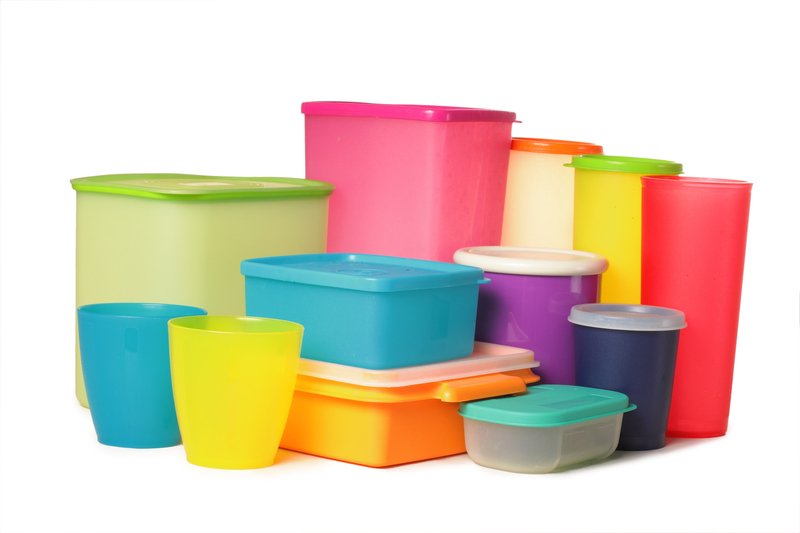Breaking Down Mini Skips: What They Offer
Posted on 25/05/2025
Breaking Down Mini Skips: What They Offer
If you're planning a home renovation, garden clearance, or any small-scale project, waste management becomes an important consideration. That's where mini skips come into play. In this comprehensive guide, we'll explore everything you need to know about these compact waste disposal solutions: their benefits, sizes, uses, costs, and how to select the ideal mini skip for your needs. This article will help you make the right decision and keep your project tidy and environmentally responsible.

What is a Mini Skip?
A mini skip is a small-sized waste container--typically holding between 2 to 4 cubic yards of waste--designed for domestic and light commercial use. These skips are particularly useful for disposing of small quantities of rubbish from house clearances, garden cleanups, and minor construction jobs. Mini skips are the most compact of all skip sizes, offering both convenience and efficiency.
Key Features of Mini Skips
- Compact design: Easily fits on driveways or small plots.
- Easy access: Simple to load due to low side walls.
- Affordable rental: Lower hire costs compared to larger skips.
- Eco-friendly waste management: Supports recycling and responsible disposal.
Types and Sizes of Mini Skips
There are mainly two standard sizes for mini skips:
- 2-Yard Mini Skip: Can hold about 20-30 filled black bin bags. Ideal for small decluttering, garden waste, or a single-room renovation.
- 3-Yard or 4-Yard Skip (Midi Skip): The next step up from a mini skip, these still offer a compact solution but with greater capacity, suitable for slightly larger tasks.
Mini skips are perfect for tight spots or where space is at a premium. Their size and weight make them easy to position in driveways or even on certain public roads with permits.
Mini Skip Specifications
- 2-Yard Mini Skip: Dimensions average 1.2m (length) x 0.9m (width) x 0.8m (height).
- 4-Yard Mini Skip: Dimensions average 1.8m (length) x 1.3m (width) x 1.0m (height).
Benefits of Using Mini Skips
Mini skips deliver an array of advantages for both homeowners and businesses. Here are some standout benefits:
1. Cost-Effective Waste Solution
- Lower hire fees: Their small size translates to cheaper rental and delivery costs.
- No need for council permits in many cases: Placing a mini skip on your private driveway often doesn't require a permit, saving further on costs.
2. Easy Placement & Accessibility
- Perfect for restricted spaces: Can fit into compact driveways, gardens, or tight access locations where large skips can't go.
- Low sides for simple loading: Reduces the effort needed to lift and load heavy items.
3. Environmentally Responsible
- Promotes recycling: Waste collected is sorted, maximizing recyclable material recovery.
- Reduces landfill impact: Ensures responsible waste disposal.
4. Flexible & Convenient Rental Options
- Short-term and long-term hire: Book for just a day or for extended periods as needed.
- Fast delivery and prompt collection: Streamlines your project timeline.
5. Keeps Projects Safe & Organised
- Reduces risk of accidents: Collects waste in a central spot, keeping your work area clear and hazard-free.
- Improves site tidiness: Less clutter equals more productivity and safety.
What Can You Put in a Mini Skip?
Mini skips are designed to accommodate most general waste, household rubbish, and light construction debris. Here's what you can and can't typically dispose of in a mini skip:
Permitted Waste Types
- Garden waste (soil, grass clippings, branches)
- Household junk (old furniture, toys, clothing)
- Rubble, bricks, small amounts of hardcore
- Plastics, packaging, and other non-hazardous items
- DIY waste (tiles, plasterboard, bathroom fittings)
Prohibited Items
- Batteries and electrical appliances (WEEE waste)
- Asbestos-containing materials
- Hazardous chemicals and solvents
- Paint cans and tires
- Large appliances (fridges, freezers)
If you're unsure about a particular item, always consult your skip hire provider. Disposal of restricted or hazardous materials can incur fines or require specialist handling.
Popular Uses for Mini Skips
Mini skips offer versatility for a wide range of domestic and light trade applications. Here are some of the most common uses for these compact skips:
- Garden Clearance: Dispose of soil, turf, plants, branches, and other green waste quickly and easily.
- Home Decluttering: Tidy up rooms such as lofts, garages, or sheds with no trips to the local tip.
- Small Renovation Projects: Perfect for minor kitchen, bathroom, or bedroom refits.
- Move Preparation: Eliminate unwanted goods before relocating to a new address.
- Event Clean-Ups: Manage the aftermath of garden parties, weddings, or community events.
How Much Does Mini Skip Hire Cost?
The price of mini skip hire is one of its strongest selling points. Factors that affect the cost include the skip size, your location, the length of the hire period, and whether a permit is needed.
Typical Mini Skip Hire Prices (UK)
- 2-yard skip: ?70-?120 (1-2 weeks hire)
- 4-yard midi skip: ?120-?170 (1-2 weeks hire)
- Permit (if required, for road placement): ?30-?60 (varies by council)
Prices may vary across regions. Urban areas usually command slightly higher prices due to demand and transport costs. Always request a full quote including VAT and any potential extras for overfilling or extended rental.
How to Choose the Right Mini Skip for Your Needs
Selecting the correct skip for your project avoids unnecessary expense and helps keep your site safe and manageable. Here's how to determine the best mini skip solution:
Estimate Your Waste Volume
- Mini skips are best for loads of 30 black bags or less. If you suspect your waste will exceed this, consider a midi or builder's skip.
- Overfilling a skip may lead to extra fees or require a second skip rental.
Location & Access
- Mini skips are ideal for properties with limited space. Measure your driveway or access gap to ensure your chosen skip will fit.
- For on-street placement, check with your local council about permits; most suppliers can arrange this for you.
Check for Restricted Items
- Identify any potentially hazardous materials in your waste and make alternate disposal arrangements if needed.
How to Book and Use a Mini Skip
Once you've decided on the best mini skip size, the booking process is straightforward:
Steps to Hiring a Mini Skip
- Get a quote: Contact local skip companies or use online price comparison tools.
- Book your skip: Choose your preferred dates for both delivery and collection.
- Prepare your site: Clear the area where the skip will be placed, ensuring there's no obstruction.
- Load responsibly: Fill the skip evenly and don't exceed the fill line for safety.
- Arrange collection: Most companies will collect your skip on the agreed date--just let them know if you finish early or need more time.
Tips for Efficient Skip Loading
- Break down bulky items to save space
- Place lighter items on top of heavier waste
- Don't overfill--skips should remain level with the top edge
Mini Skips vs. Larger Skips
While mini skips are suitable for small to mid-sized projects, it's important to know the difference compared to larger skip sizes:
- Builder's skips (6-8 yards): Used for sizeable building or renovation jobs.
- Maxi skips (12+ yards): Intended for industrial, commercial, or very large domestic projects.
- Mini skips: Offer the best solution where space, cost, and waste volume are limited.
For most household jobs or garden clear-outs, mini skips are not only sufficient, but also the most convenient and cost-effective option.

Environmental Impact of Mini Skip Usage
Choosing mini skips is not just about convenience and cost; it's also about doing your part for the environment. Reputable skip hire firms sort the collected waste, aiming to divert as much as possible from landfill through recycling. In many cases, over 80% of mini skip waste is recycled.
- Fewer journeys to the tip: Using a mini skip reduces personal vehicle emissions.
- Encourages recycling: Mixed loads are processed at specialist waste facilities to recover materials.
Conclusion: Why Mini Skips are a Smart Choice
Mini skips are a practical and affordable waste management solution for home and garden projects. They provide a hassle-free way to manage rubbish and clutter, can be positioned in tight spaces, and support responsible disposal and recycling.
When comparing your options for rubbish removal, consider what mini skips offer: convenience, cost savings, accessibility, and environmental benefits. Secure a tidy and efficient worksite, keep local regulations in check, and enjoy the peace of mind that comes with proper waste management.
If you have a small-scale project lined up, booking a mini skip is the easiest route to a clutter-free result--making your clean-up quick, simple, and sustainable.
Latest Posts
The Different Faces of Hazardous Waste Explained
Master the Art of Hosting with Our Pre-party Cleaning Tips
Working Green: Practical Tips for Reducing Office Waste





